Streamlined Energy and Carbon Reporting (SECR) Management Systems have emerged as a critical tool for organisations committed to sustainability, and responsible environmental practices. In this article, we will explore the significance of SECR Management Systems, their key components, and how they empower businesses to streamline energy reporting and reduce carbon emissions.
SECR is a UK government initiative that requires large organisations to report on their energy consumption, greenhouse gas emissions, and energy efficiency measures. SECR Management Systems provide a structured approach to collecting, managing, and reporting this data. These systems help organisations to not only meet regulatory requirements but also harness the benefits of sustainable energy management.
For organisations seeking to implement SECR Management Systems, the following steps are typically involved:

To conclude, SECR Management Systems are instrumental in paving the way to sustainability and responsible energy and carbon management. By implementing these systems, organisations can not only meet regulatory obligations, but also harness the financial benefits of energy efficiency, and the environmental rewards of reduced carbon emissions. For businesses committed to a sustainable future, SECR Management Systems are the roadmap to a more eco-conscious and competitive tomorrow.
To learn more about how Streamlined Energy & Carbon Reporting Management Systems can benefit your organisation and help you make responsible procurement choices, contact us today.
Large UK companies and Limited Liability Partnerships (LLPs) are typically subject to SECR if they meet at least two of the following criteria: over 250 employees, an annual turnover exceeding £36 million, or an annual balance sheet total exceeding £18 million.
A SECR Management System helps organisations collect, manage, and report data related to energy consumption and carbon emissions. It streamlines the process, making it easier for businesses to comply with SECR requirements.
Implementing an SECR Management System can significantly simplify the reporting process and improve data accuracy. It can help your organisation analyse energy consumption, identify areas for improvement, and ultimately reduce costs while meeting legal requirements.
SECR reports typically include data on energy consumption (electricity, gas, and transport fuel), associated carbon emissions, energy efficiency measures, and any relevant narrative disclosures.
Yes, many SECR Management Systems are designed to integrate with existing data sources, such as utility bills, financial records, and energy monitoring systems, to streamline the data collection and reporting process.
While there are no specific industry standards, it’s advisable to choose a system that aligns with recognised carbon reporting standards like the Greenhouse Gas Protocol, and the ISO 14064 series, to ensure your reports meet international expectations.

We leverage years of experience in cyber security to deliver comprehensive solutions tailored to your needs.

We're certified in ISO 9001:2015, Cyber Essentials Plus, IASME Gold and are a Crown Commercial Service Supplier.

NCSC (CESG) Certified Professionals CCP and Certified Information System Security Professional CISSP certified.

We're Certified Information Security Managers (CISM).

We're members of the Chartered Institute of Information Security (CIISec). CREST and Cyber Scheme Registered Pentesters.

We stay ahead of the curve, consistently updating our services to handle the rapidly evolving landscape of cyber threats.

We work closely with clients, fostering partnerships to better understand and address your cyber security needs.

We offer pragmatic, accessible solutions that balance security needs with the realities of your operational requirements.